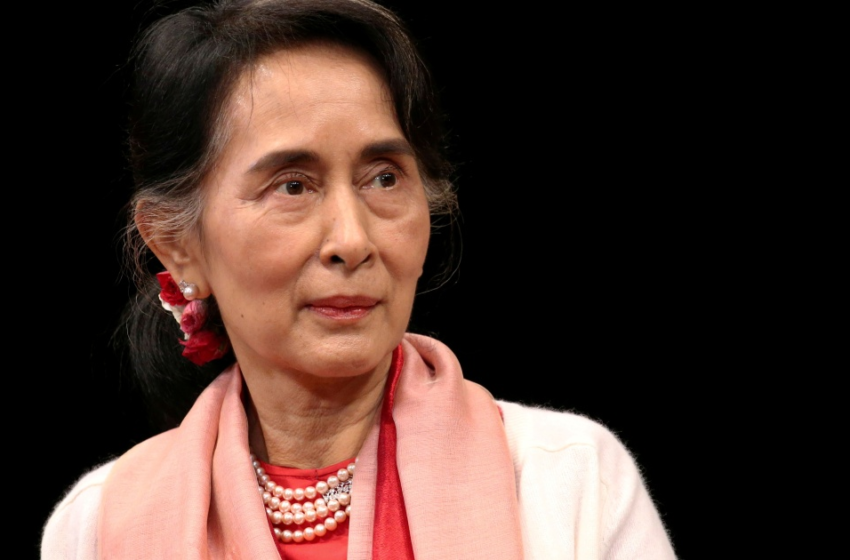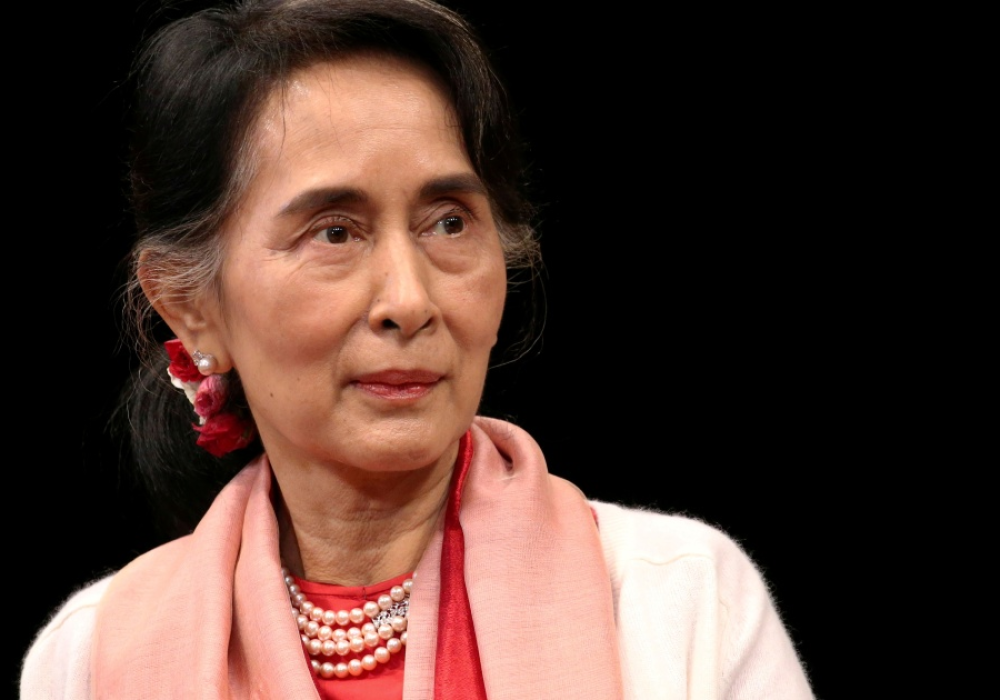A court in Myanmar has sentenced the country’s deposed leader Aung San Suu Kyi to four years in jail.
A spokesman for Myanmar’s military told the AFP news agency on Monday that Aung San Suu Kyi was found guilty of incitement and of violating COVID-19 rules.
Zaw Min Tun said she received two years in prison on each of the two charges.
Former President Win Myint was also jailed for four years under the same charges, he said, adding that the pair will not be taken to prison yet.
“They will face other charges from the places where they are staying now” in the capital Naypyidaw, he said, without giving further details.
The ruling on Monday is the first in a dozen cases the military has brought against the 76-year-old since it deposed her civilian government in a coup on February 1. The trial in Naypyidaw has been closed to the media, while the military has barred Aung San Suu Kyi’s lawyers from communicating with the media and the public.
Other cases against the Nobel Peace Prize laureate include multiple charges of corruption, violations of a state secrets act, and a telecoms law that altogether carry a maximum sentence of more than a century in prison.
Her supporters say the cases are baseless and designed to end her political career and tie her up in legal proceedings while the military consolidates power.
Aung San Suu Kyi denies all the charges.
‘Potent force’
The daughter of the hero of Myanmar’s independence from British colonial rule, Aung San Suu Kyi spent years under house arrest under a previous military government.
She was freed in 2010 and led her National League for Democracy (NLD) to a landslide victory in a 2015 election.
Her party won again in November last year but the military said the vote was rigged and seized power weeks later. The election commission at the time dismissed the military’s complaint of vote fraud.
Historian and author Thant Myint U said military leaders thought their predecessors who launched reforms more than a decade ago had gone too far in allowing Aung San Suu Kyi back into politics and the entire reason for the coup was to exclude her.
“She remains far and away most popular in Myanmar politics and may still be a potent force in what’s to come,” he told Reuters.
Western states have demanded Aung San Suu Kyi’s release and condemned the violence since the coup.
On Monday, the United Kingdom said the former leader’s sentencing was “another appalling attempt by Myanmar’s military regime to stifle opposition and suppress freedom and democracy” and called on the “regime to release political prisoners, engage in dialogue and allow a return to democracy”.
Matthew Smith, chief executive of the Fortify Rights group, said the sentencing was “part of a widespread and systematic attack on the civilian population” and called for the immediate release of Aung San Suu Kyi and other political prisoners.
The group ASEAN Parliamentarians for Human Rights (APHR) also condemned Monday’s sentence as a “travesty of justice”.
“Since the day of the coup, it’s been clear that the charges against Aung San Suu Kyi, and the dozens of other detained MPs, have been nothing more than an excuse by the junta to justify their illegal power grab,” said Charles Santiago, a Malaysian legislator who heads the APHR.
The regional Association for Southeast Asian Nations (ASEAN), which has spearheading diplomatic efforts to resolve the crisis in Myanmar, must “hold the line against this illegal takeover”, he said, adding that Monday’s ruling demonstrates “the junta’s continuing contempt for ASEAN” and its peace plan, which was agreed with Myanmar’s military in April and which includes initiating dialogue between the opposing sides in the country.
‘Farcical and corrupt’
Since the coup, Myanmar has been in turmoil, paralysed by protests and instability that escalated after the military’s deadly crackdown on its opponents. Security forces have killed at least 1,303 people in the clampdown, according to the Assistance Association for Political Prisoners (AAPP), a human rights group that records killings by the country’s security forces.
At least 354 opponents of the coup have also been sentenced to jail or to death, according to AAPP, including Aung San Suu Kyi’s aide, Win Htein, who was sentenced to 20 years in jail in October.
Amnesty International’s Ming Yu Hah said the sentencing of Aung San Suu Kyi on Monday on “bogus charges are the latest example of the military’s determination to eliminate all opposition and suffocate freedoms in Myanmar”.
“The court’s farcical and corrupt decision is part of a devastating pattern of arbitrary punishment that has seen more than 1,300 people killed and thousands arrested since the military coup in February,” she said, calling for swift, decisive and unified action from the international community.
“The international community must step up to protect civilians and hold perpetrators of grave violations to account, and ensure humanitarian and health assistance is granted as a matter of utmost urgency,” she said.










